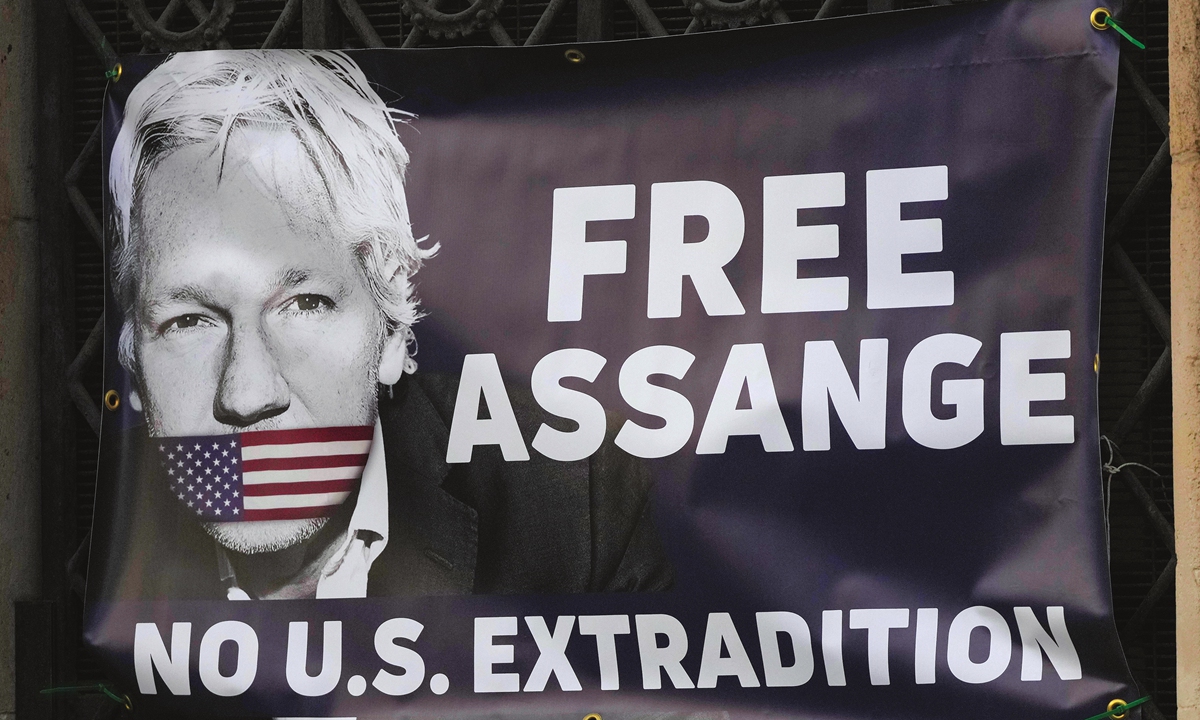
A banner in support of Wikileaks founder Julian Assange is seen outside the High Court in London, which ruled on December 10, 2021 that Assange can be extradited to the US. A lower court judge earlier this year refused the US request for extradition. Photo: VCG
Stella Assange, wife of WikiLeaks founder Julian Assange, urged the British government on Saturday not to sign his extradition order to the US, saying his fate will have repercussions throughout Europe.
A UK court on Wednesday issued a formal order to extradite the WikiLeaks founder to face trial in the US over the publication of secret files relating to the Iraq and Afghanistan wars.
The final decision now rests with interior minister Priti Patel, although Assange could yet appeal.
"This is a political case, it has always been a political case," Stella Assange told AFP on the margins of a demonstration in support of her husband in Brussels.
"Now that the UK courts have issued the extradition order, there is no excuse. It is squarely in the political domain."
The ruling Wednesday by a magistrate in central London brings the long-running legal saga in the UK courts closer to a conclusion.
But Assange's lawyers have until May 18 to make representations to Patel and could potentially launch further appeals on other points in the case.
The case has become a cause celebre for media freedom, with Julian Assange's supporters accusing Washington of trying to muzzle reporting of legitimate security concerns.
Washington wants to put him on trial in connection with the publication of 500,000 secret military files relating to the US-led wars in Iraq and Afghanistan.
Stella Assange said the grounds to appeal against extradition in the United Kingdom are very narrow, with the treaty "heavily tilted in favor of the United States."
The matters being raised "go to the heart of what it means to have a free and open society of having a free press," she said, and raised the possibility of taking the matter to the European Court of Human Rights if necessary.
AFP




